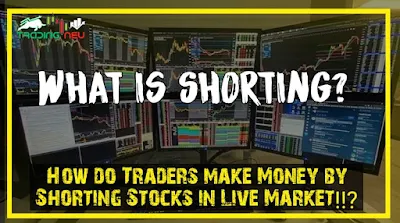Stock Short Selling: Short selling is an investment or trading strategy that anticipates a decline in the price of stocks or other securities. Traders can use short selling as a form of speculation and investors or portfolio managers can use it as a hedge against the downside risk of a long position in the same security or a related one.
According to SEBI, short selling is the sale of stock which is not held by the seller at the time of trading. Short selling is permitted to all classes of investors, be it retail or institutional investors. In short selling, a short seller sells the borrowed stock in the hope of making a profit by buying it back later at a lower price.
For example, if a seller expects a stock of Rs 100 to fall to Rs 70 level, he can borrow the stock from the broker using margin account and buy back the same stock before the expiry period.
The short seller will sell the stock at Rs 100 with the hope of buying it back if it falls to Rs 70. If the stock actually falls, the seller of the stock buys it back and closes the position. If the share was sold at Rs.100 and bought back at Rs.85, then there is a profit of Rs.15 per share.
Also Read - What is FPO after all? How different is it from IPO, understand Adani FPO Details
On the other hand, if after selling the stock for Rs.100, the stock rises further and becomes Rs.115, then he has to bear a loss of Rs.15 per share. In the event of short selling, if the stock keeps falling, then the profit keeps increasing.
On the other hand, if the stock price continues to rise, then the loss also increases. Hence short selling is largely considered a risky bet as the losses can be unlimited if the stock price keeps on increasing.

